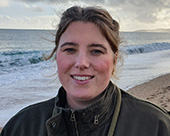Graduates in Focus 2023
View our Graduates in Focus 2022 | View our Graduates in Focus 2021
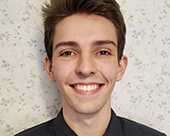 |
 |
|
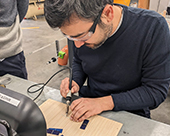 |
|
Tom Hill |
Olivia Green |
Elvina Smith |
Syed Shah Hamid Hussain |
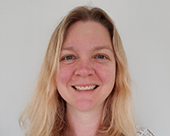 |
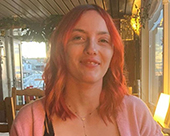 |
||
|
Nell Smirthwaite |
Sarah Walker |
Tom Hill
MSc student studying Pathgen Evolution, University of Exeter (current)
Find out about the MSc programme in Pathogen Evolution
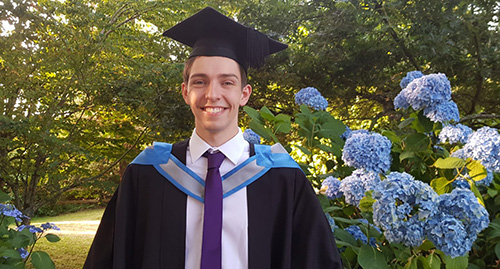
I’ve always been very animal focused in my studies. I did a BTEC in Animal Management and completed my BSc in Zoology here in Penryn last year. During my undergraduate degree I developed an interest in animal diseases and I felt the Pathogen Evolution MSc would help me specialise in disease science and broaden my interest into microbiology and the human side of disease. Covid-19 was quite a big inspiration for the course as disease feels very relevant at the moment.
I chose to stay in Penryn as the Master’s is only a year and I have already made connections here. I knew a lot of the supervisors before starting the course and some of the people I graduated with last year have come up too. I find the smaller cohort easier for doing things like presentations.
I chose the Pathogen Evolution MSc because it is so broad, I like the range of topics that we cover and both the subject specific and transferable skills I am developing. The course is structured so we have a new lecturer every two or three weeks who shares their specialism with us. This will involve two or three in person lectures, discussion sessions, online lectures and then a practical to demonstrate the learning for instance disease modelling or looking at genetic sequences.
I chose a lot of disease modules on my undergraduate course so although I found the topics quite tough to begin with, I was quite well equipped for my transition from degree to Masters’ and think it went well. Our lecturers are very supportive and welcome feedback.
The most challenging aspect for me is the literature. I am used to reading biology, ecology and zoology papers but now there is a lot of new terminology to learn especially from the medical and disease science literature.
One of my main interests is the one health approach. How humans, animals and the environment work together to create an integrated response to disease. That’s the area of study I am really excited about and looking forward to exploring further.
I chose Penryn as a place to study as it was somewhere that wasn’t in a city and was a bit quieter, I like being near the sea and it was great to study a course relating to nature in a green setting. I prefer being on a smaller campus, living in the community and knowing everyone.
I’m president of the tap-dancing society, I’m currently teaching and choreographing one of the lessons for a competition in March. I’m also part of the ballet, jazz and contemporary society and cheerleading society. It keeps me busy, and I find it a lot of fun. I really recommend getting involved in societies.
My tutor has given me a lot of career support around next steps. There are roles you can go into with my background, for instance microbiologist, but I would prefer to apply for a PhD looking at One Health from an animal perspective.
Olivia Green
MSc student studying Mining Environmental Management, University of Exeter (current)
Find out about the MSc programme in Mining Environmental Management
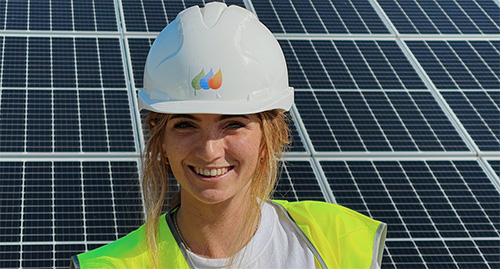
I am one of three people on the Mining Environmental Management MSc who studied Politics and International Relations as an undergrad here in Penryn.
I wasn’t sure what I wanted to do as an undergraduate and then in my third year we did a module with Deborah McFarlane called ‘The Resource Paradox. Blessing or Curse?’
Essentially it was about the politics of mining and how having an abundance of natural resources can cause conflict nationally and internationally.
I really enjoyed it, did really well, and became an intern for Deborah on her ‘People and Mining’ group which focused on the social aspect of the mining industry - which is what I’m interested in.
If I am to pursue a career in mining, I need to learn more about the industry. On the Mining Environmental Management MSc, I am learning to get all the terms right and understand topics like remediation, mapping software, and environmental, social and, governance (ESG).
The first term was very difficult, but I’m really happy that I did it. The work is very different, as I have moved from social sciences to subjects like chemistry. The challenge is the different style of work and using software which I haven’t needed to do before. We have much more contact time with more seminars and lectures than I’m used to - it means it’s easy to get answers to questions. The lecturers give us a lot of support and there are lot of extra things you can do like socials and annual diners.
Being part of Camborne School of Mines (CSM) is great fun. CSM is its own community within the University, everyone’s very down to earth and I really feel at home here. I’ve been trying to get involved in as much as possible to balance out the hard work.
I’ve taken part in training for the International Mining Games, part of The Camborne School of Mines Society, which is a competition involving events based on traditional mining techniques like Mucking - shovelling broken rock into a cart and running it down a track.
I’m also going to Belgium as part of International Student Week and try to get to as many Pint and Pasty nights as I can too. CSM invite companies in the mining industry to give a talk and then there is the chance to network afterwards. Opportunities for networking are really encouraged and exposure to industry experts has been amazing. We also got to go to the Mines and Money Conference in London for free too.
One of the reasons I chose the Mining Environmental Management MSc is because half of the course is a research project, which I can tailor to my interests.
My research project involves an internship at the International Finance Corporation which is a branch of the World Bank. I have a meeting with them every couple of weeks and am flying out to Washington in April to do some interviews.
I am going to do a cost benefit analysis for them on mine waste tailings that will encourage companies to invest in dewatering technologies to make mine waste solid in order to reduce the risk of spills from liquid slurry stores. The report will be shared with Chief Financial Officers in the mining industry and argue the environmental and social reasons for investing in this technology.
We’re not going to feed the energy transition or meet net zero if we don’t have mining. That aspect is something I’m really interested in. I want to contribute to building wind turbines and electric cars and sustainable mining of the materials, like copper, that are needed for them.
I’d like to work for an international body to do environment and social advisory work at different mine sites. This course makes me feel confident that I will find a job I will enjoy.
Elvina Smith
MSc student studying Pathgen Evolution, University of Exeter (current)
Find out about the MSc programme in Pathogen Evolution
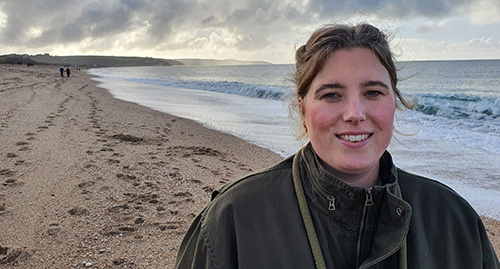
My degree programme is the MSc in Pathogen Evolution. What initially attracted me to the programme is the fact that it tackles antimicrobial resistance which is a massive problem. We need to be considering evolution and ecology in managing disease and pathogens; antimicrobial resistance is often neglected. The course itself is so timely.
I wanted a career in science right from the start, biology specifically. I've always had an interest in the medical side of things, including learning about pathogens in zoology and veterinary medicine. I grew up in Devon and used to work as a keeper at a local zoo. I chose to study Zoology at Exeter’s Penryn campus for my undergraduate degree which opened things up in terms of subjects and has since allowed me to specialise in microbiology and human disease. After my undergraduate degree I had a year out where I volunteered at the zoo again. Then I came back down to Cornwall for the MSc.
The structure of the MSc programme is great. Our first module was called Advanced Topics in Pathogen Evolution. It was a really good introduction to the course. The kind of opportunities the programme gives you is just incredible. We’re also learning complicated statistics that are used in modern science and have been given a really good grounding in academic writing. We’re getting to the point where we’re learning to write publishable papers. To be able to get these skills is really cool.
The research that's coming out of the ESI is phenomenal. This bringing together of evolutionary principles, ecology and microbiology and biochemistry is cutting edge. These different, crucial concepts are being brought together in new research. Because of this, Penryn campus is perfect for a course like Pathogen Evolution.
I chose this MSc because of the programme as well as the location. Cornwall has the most incredible scenery, beaches and wildlife. It’s perfect for zoology because you've got these amazing natural landscapes. It's so nice to be part of a community that recognises and protects the beauty of the natural surroundings. For me, the best bit about choosing this programme is the fact that you’re in this beautiful place with the most amazing atmosphere - all the beaches, all the fun - but at the same time there’s cutting edge research going on.
At the moment I'm applying to a PhD here on the Penryn campus.
Syed Shah Hamid Hussain
MSc student studying Renewable Energy Engineering, University of Exeter (current)
Find out about the MSc Renewable Energy Engineering
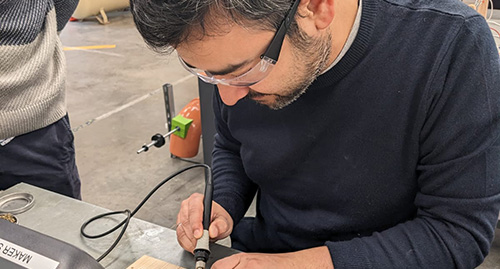
I did my undergrad in electrical engineering at Maharshi Dayanand University in India back in 2009. From 2009 to 2022 I worked in industry. To start with I worked for Fichtner Consulting Engineers as an Electrical Design Engineer. Then I worked with IL&FS Energy, a project management consultancy in the area of conventional energy and energy efficiency. I knew I wanted to move into renewables. Then Covid happened and I had a lot of time to think. That's when I decided I should do something different.
I was looking at a lot of British universities but I saw that Exeter offered the best modules in Renewable Energy Engineering which made me choose this university. The modules are designed really well. I particularly love the solar module and the low carbon vehicle module. The course is also designed well and the support from academics and lab technicians has been really good. It’s a one-year course so it’s packed full of assignments.
There have been a lot of pint and pasty sessions with a number of companies to help us network. It’s the best way to find a job because you interact on a personal level and can then send companies your CV. Companies travel to the campus from across the UK because they want to hire students from here. This is how I got a job with Photon Energy who are based out of Reading. For now, I want to work in the UK in order to understand how the industry operates as well as the market. Then I hope to start something of my own in India. That’s my ultimate goal.
Cornwall is beautiful. I come from New Delhi and it's so crowded and polluted. Coming from the city to a place like Falmouth where I now live is great. Falmouth is very quaint. Delhi is landlocked so it’s good to be by the sea. Leaving my mother behind in India and finding somewhere to live was hard at the start but then I found somewhere in Falmouth for my wife and me. On the other hand, being an international student here has been really good in terms of meeting people and making friends. The campus is really diverse and the university believes in inclusivity. It has all been so good. I’ve never been made to feel like I am from somewhere else.
Nell Smirthwaite
MSc Sustainable Development programme graduate
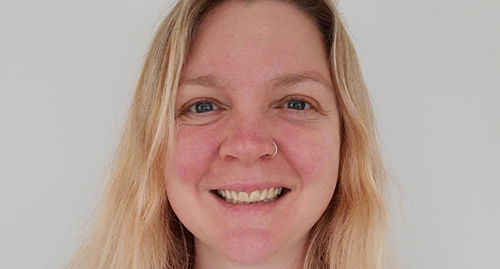
I studied History at Bristol for my undergraduate degree back in 2001. It wasn’t that I had a clear career goal but chose History because I enjoyed the subject.
After graduating in 2004, I did some travelling and then worked in the charity sector, initially in contract funding and then in operational management and strategic development. I had always been interested in how businesses and charities operate to bring about changes to society; and how there are different ways of doing things in a social economy.
I took a career break to raise my children but was still interested in the changing nature of businesses and charities in affecting change, so I started a blog. I interviewed people like the CEO of the Eden Project, the CEO of LEAP - one of the first B-Corps in Cornwall, and a great charity that was doing some interesting work in education in Ghana. I then went on to do some consultancy work and ran ‘Business from the heart’ workshops, helping small businesses in Cornwall operate in a way that is more mindful of the environment and its employees. I found there was a lot of interest; a lot of people have moved here for the lifestyle and fulfilment in what they are doing. Not all businesses are purely driven by profit. And that was when I became more interested in the B-Corp model of business amongst other emerging models that changed the way businesses were operating, as well as emerging frameworks for sustainability in policy making such as Kate Raworth’s Doughnut Economics. As the children were getting older, I thought about going back to work when I saw the Masters in Sustainable Development and realised it was a good way of bringing together everything I was interested in and had experienced and would help progress my career in this area. I studied part-time and deferred my dissertation a year due to Covid but completed the programme in 3 years.
I was able to commute to campus for lectures and seminars from my home in Cornwall. Having the opportunity to study this subject in my home county was brilliant and something I couldn’t do when I did my first degree. It was exciting to be joining the University of Exeter, a high-profile Uni with a great reputation. I was also aware that the ESI was at the forefront of great research in sustainable development.
Being a mature student, going back to a learning environment and applying myself to my studies was hard but I really enjoyed it. It was a juggle managing family and studying, but I learnt to be disciplined, splitting my time between being a good mum and a diligent student.
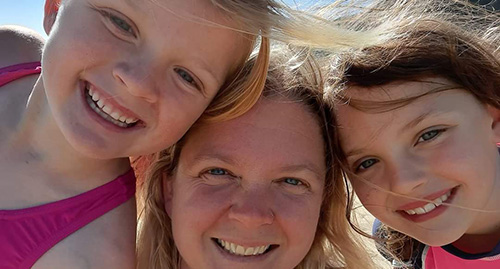
Covid was a big challenge, but there were also some positives. Going online was brilliant, as it saved my commute; an hour seminar was just an hour instead of a day out. Studying and home schooling my children was a challenge. I had also taken on a 3-month research assistant role just as we entered lockdown. Working two days a week, doing a Masters and home schooling was tough but we made the most of it and had good times too, with the girls home and lots of sunny weather.
The Masters in Sustainable Development is taught via a combination of lectures, seminars and field work, as well as the opportunity to focus on your own specific areas of interest, such as learning about how to affect policy which was an area I was becoming interested in
I enjoyed learning how to conduct independent research and got a buzz from doing the first mini practical. I can now see why people go into research, it’s quite exciting. There was a good focus on how to be analytical in your research and how to approach writing up your research in an analytical way. The module was called ‘Transdisciplinary Methods for Sustainability Science’. I found this really interesting and valuable, especially as I didn’t have a scientific background.
My absolute highlight, though was doing my dissertation, which was ‘An explorative study into the barriers and drivers of multinational companies adopting a B-Corp model.’
I had great support from my tutor, who was always very responsive and gave good advice. And my dissertation supervisor was brilliant; she would listen to me, let me explain my various crises when I was struggling, and gently and constructively give me some clear tips on how to move forward. This clear direction would help produce results. She was patient and calm during my moments of panic!
Despite this, I really have enjoyed all of it. It’s been such a different experience and environment to when I first went to university; I’ve been surrounded by inspiring women at the peak of their academic careers, doing exciting and meaningful research.
I think Cornwall lends itself to studying sustainable development because we have so much green space and proximity to the sea. Cornwall is leading the green revolution, investing in renewable energy, so it’s also good place to have a qualification in Sustainability. There are many opportunities to apply that to your career here, in sectors such as offshore wind, marine and renewables.
I come from Cornwall and grew up here. It’s a very different place now to what it was in 80s; it’s a very exciting place to live and is embracing the new challenges and opportunities of the 21st Century. We have lots to offer, in terms of the renewables sector and a business culture that is leading the way in making fundamental changes to operate in more sustainable ways. It’s an inspiring place for me to be professionally.
I am now working for Cornwall Council as a strategy and implementation officer for the Good Growth team, implementing strategic prosperity funding. This is the levelling up funding that is coming to Cornwall. The underlying principle of the fund is good growth, so that means I’m supporting projects that pay the living wage or looking to achieve net zero and reduce carbon emissions, either by adopting circularity principles or through nature recovery. Those principles underpin the program. It’s an exciting way of being involved in embedding sustainability in Cornwall and bring about change.
I have stayed in touch with other MSc students, both personally and professionally. It’s lovely to see them develop their own careers. You hope you’ll be one of lucky ones and get a job where you can apply what you’ve learned on the Masters. The people I have kept in touch with really have done this, and they are now part of my professional network.
Sarah Walker
MSc Sustainable Development programme graduate
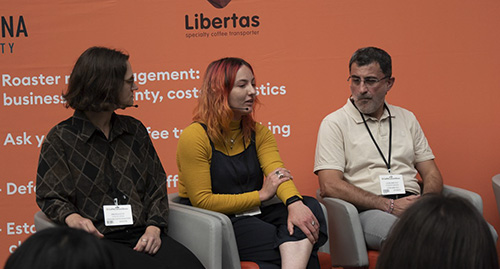
My undergraduate degree was in English and Creative Writing at Falmouth University. I have always enjoyed writing and reading but didn’t know what career I wanted from it. With my Masters, I knew it was more important to me, aligned with my values and would be a good career move. I had worked for around 10 years in between, firstly in marketing, then events, and then more business to business marketing and membership management.
At the time I signed up for the Masters programme, I was working in business support for the marine sector in Cornwall, and it was through this that I got inspired by some businesses that were doing positive things in the context of the IPCC report, school climate change strikes and the increasing awareness of climate change in our day to day. So, I decided to leave my job and retrain by doing a part-time Masters in Sustainable Development.
I was interested in postgraduate degrees relating to Conservation and Biology but didn’t have the foundational science knowledge to be able to get onto them. Also, I wanted something that was more holistic that I could apply some of my professional learning to, which I could do with a Sustainable Development degree.
My favourite thing about this course was that the academics leading it were conducting their own research at the same time, and this was relevant to what we were learning about. So, we were some of the first people to learn about new developments in that area. Having this very current knowledge base to draw from was great.
I did have to overcome my lack of scientific background (I hadn’t studied science since my GCSEs), mostly in terms of analysing data and writing scientifically. I could apply a lot of my other experience to the course, for example developing campaigns, but I was used to writing creatively, so I had to get used to writing scientifically, which had to be much more precise and factual.
Everything I learnt was complex and substantial, but as I was passionate about learning about it, I didn’t find it a struggle. I enjoyed reading all the articles and deep diving into the knowledge. I learnt how to sift through the large quantity of available data to find the best quality information. I felt that how to distinguish between what is and what isn’t quality information was taught well on the course.
In terms of the support I received, before I could commit to doing the course part-time, the academic team put me in touch with current part-time students, so I could understand how I would be able to complete the course and manage a paying job at the same time. They made me realise that I could do it, which was very important. Also, my dissertation supervisor was really committed to helping me out. He had a hard job with me as I didn’t have a scientific background. I needed a lot of assurance and he went above and beyond to help out.
As I did the Masters over 2 years, the first year was face to face teaching on campus, but then because of the Covid pandemic, my second year was online. It was interesting to see how the teaching adapted. I still felt engaged and connected, even when largely studying remotely. I won an award for student support, as I was so keen to see people, I kept tabling dissertation meetings.
In addition to lectures and seminars, there are also field work and placement opportunities. I did an assessed work placement with Tira Eco as part of one of the modules. Tira Eco developed technology to help black soldier fly farmers. It was very interesting to learn about insects, as these are potentially a massive part of the future – as a protein source, for breaking down organic matter, and for enriching soils. I developed some user guides for farmers to help optimise farming processes.
My favourite module was on marine and coastal sustainability, incorporating the social and the environmental to create the outcomes we need. So, it was ideal to then go on a field trip to Newlyn Fish Market, where we saw fish being auctioned off and learnt about the work of the marine stewardship council to ensure the catch was within the remit of being sustainable. We spoke to some representatives from the dock to understand more about sustainable fishing, how quotas are set, and what that means practically for them. That was a fantastic trip for me and shows there are all sorts of people at every level across society trying to monitor and manage what we are doing to varying degrees of success.
I also went to a community project held at the Eden Project to connect people who might have employment challenges with horticultural studies by working in the nurseries. This was a deep dive into the social factors of those kinds of projects, in elevating people and offering opportunities for people to rebalance society and consider the wider context of people’s lives.
I’m now a Sustainability Manager at Origin Coffee, a B-Corp, where I oversee the organisation’s sustainability efforts; it’s very diverse and interesting. I also became co-chair of our local B-Corp network and speak at and run events to bring people together to create more of a triple bottom line approach to business, which is very rewarding to see. I’ve spoken at industry panels about decarbonising the coffee supply chain. I’ve also worked with the sustainability working group at Truro City Council and spoken at Cornwall Chamber of Commerce’s Planet C event. This has all come from what I learnt on the degree – I wouldn’t have been in a position to do any of these things before I came to the ESI. I feel really lucky that I took the risk and it paid off.
The course attracts a good mix of people, because there’s so much you could potentially learn about, everyone ends up with quite a unique experience. Even though everyone did the same degree, there are lots of avenues to go down eg food, energy, human/nature relationships. That mix of people with different experiences and interests, made it really interesting. I’m still connected with people from my course who are now doing all sorts of different things, like working for Odd box (veg box made from surplus fruit and veg), or the Norwegian government looking at plastic reduction, or working in sustainable event management. There are so many ways you could use it.
Studying Sustainable Development in Cornwall was convenient for me. I took a big risk leaving my job to do a part-time degree. Moving my whole life as well would have been extra stress. I was already wedded to Cornwall, as I moved here for my undergraduate degree and never left. I can see how learning at the ESI in Cornwall is an inspiring context against other more urban environments. Here you can connect more to nature and this inspired my dissertation, which was about access to nature.
It was the Cornish business community that inspired me in part. And there’s a similar community and good networks within the ESI. You do feel that what you’re studying is applicable to the real world, which has been affirmed more since graduating. A lot of people down here care about the environment. When you’ve got it on your doorstep and feel connected to it, you feel empowered to protect it. We are very lucky to have 400miles of coastline to inspire us.

